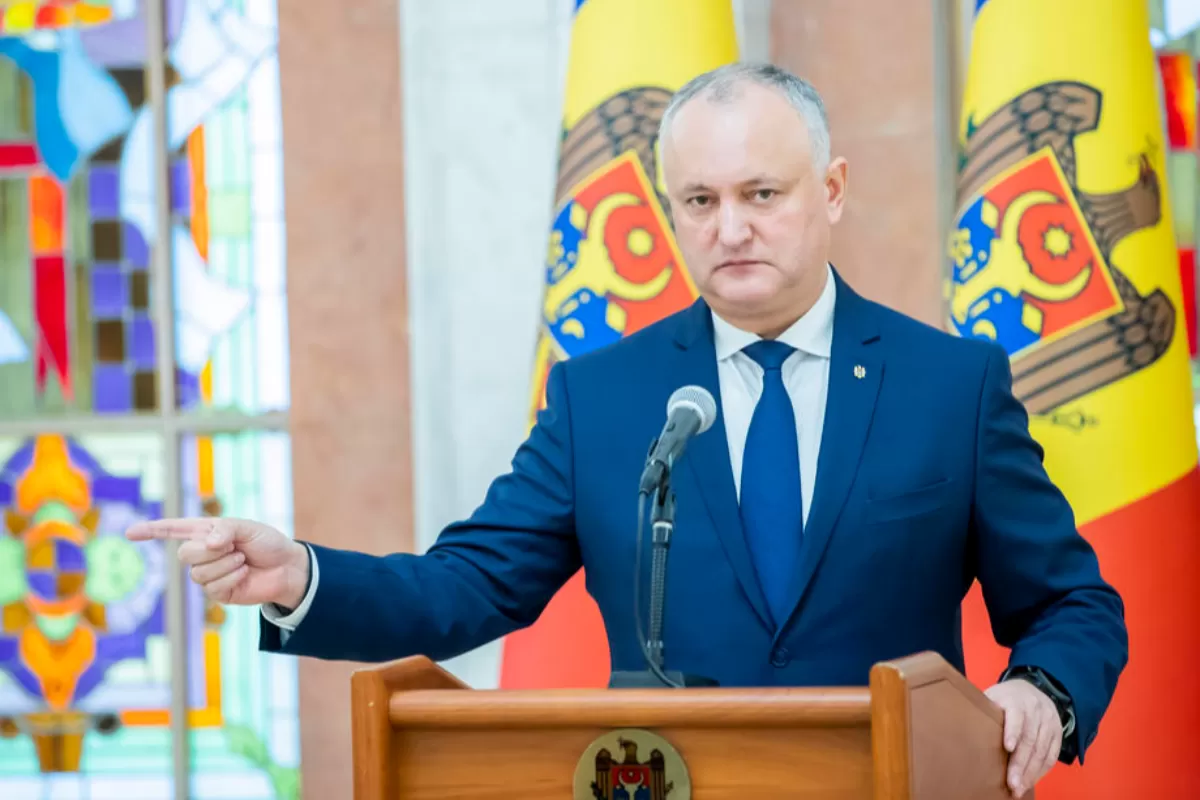
The West wants to force the victory of the pro-Europeans in the Moldovan elections in order to draw the country into its fight with Russia. This false narrative is promoted in the context of an election campaign in which pro-Russian forces - Socialists and Communists - seek to emphasize the issue of Moldova's geopolitical orientation.
NEWS: “The former President of the Republic of Moldova Igor Dodon, co-president of the Electoral Bloc of Communists and Socialists, has stated that Western players want Moldova to take the anti-Russian path and turn the country into a battleground with Russia, Ria Novosti reports. The quoted source recalls that the representative of the Russian MFA, Maria Zaharova, has also stated that the USA and the EU are trying to interfere in the parliamentary elections in Moldova.
“Western geopolitical players need Moldova to take an anti-Russian path. My mission as a politician is to save Moldova and not to admit its transformation into a geopolitical battlefield with Russia, as the West wants”, Igor Dodon told Primul TV in Moldova.
Igor Dodon also said that the republic could disappear as a state in 4-8 years if Western countries manage to take control of the Moldovan parliament after the elections.”
NARRATIVES: 1. The West uses Moldova against Russia. 2. The EU and the USA are interfering in the elections in the Republic of Moldova. 3. The Republic of Moldova will disappear as a state if the pro-Western parties win the elections.
CONTEXT: Election campaigns in the Republic of Moldova are always marked by the “geopolitical” theme, in the context in which the political class is divided into two camps - one pro-Russian and one pro-Western. Although, officially, parties define themselves as right or left, socialist or liberal, in essence they act and are perceived by the electorate as formations that are either followers of the pro-European and democratic development path of the Republic of Moldova or promoters of staying close to the Russian Federation/ remaining in the sphere of Russian influence. The Moldovan electorate is divided almost equally between supporters of the pro-Western camp and those of the pro-Russian one, and the result of the vote remains unpredictable until the ballots are counted.
Because they drastically fell in the voting intention polls, pro-Russian Igor Dodon's Socialists allied with Vladimir Voronin's Party of Communists and formed an electoral bloc. They are trying to drag their main rival, Maia Sandu's Action and Solidarity Party, in a geopolitical electoral battle, promoting various fake news and narratives meant to scare the electorate. Voters are told that NATO integration (which has a traditionally negative image, from the time of the USSR, and has been constantly spoken ill of in the post-Soviet period by the Russian media, extremely influential in the Republic of Moldova) and the union with [fascist] Romania are the next steps, that Moldova is at the behest of the West, that relations with the Russian Federation will worsen, that the Transnistrian area will turn unstable, etc. Such messages come including from high-ranking Russian dignitaries, as in last year's presidential campaign.
On the other hand, PAS, which from the beginning wanted early elections to win more seats in Parliament in order to support President Maia Sandu's democratic reform agenda, is promoting an anti-corruption discourse, with which it won the presidential elections in the autumn of 2020.
The recently dissolved parliament was marked by an unprecedented scale of political party switching and bribing among deputies, who switched parties several times during the two years of unfinished term. Igor Dodon's Socialists - who have the largest parliamentary group – have forged several alliances, with the NOW Bloc, then with the Democratic Party and deputies affiliated with the fugitive Ilan Shor, involved in one-billion-dollar theft.
PURPOSE: The news aims to undermine voters’ trust in the Western partners of the Republic of Moldova, as well as in the pro-Western parties in Chisinau, which are the Socialists’ rivals. The narrative is also aimed at diverting public attention, during the election campaign, from the issue of corruption among dignitaries and the poverty that affects the population of the Republic of Moldova.
WHY THE NARRATIVES ARE FALSE: Democratic reforms for the benefit of citizens, the fight against corruption, strengthening the rule of law, the independence of institutions, the independence of the judiciary, required by Moldova's development partners and stipulated in the Moldova- EU Association Agreement does not mean taking an anti-Russian path. Being close to the EU does not mean being an enemy of Russia. The Moldovan citizens’ desire to live better, in a state governed by the rule of law, without corruption, has nothing to do with Russia, so it cannot be interpreted as a desire to fight Moscow.
The Western partners of the Republic of Moldova have never conditioned their relations with Chisinau on the latter distancing itself from or fighting with the Russian Federation. On the contrary, Moscow has repeatedly imposed embargoes on Moldovan wines and products exported to Russia, thus sanctioning Chisinau's pro-European aspirations (in 2013, when the Moldova-EU Association Agreement was signed).
The geopolitical confrontation agenda is usually a false one, which tries to replace the real issues faced by the Republic of Moldova, such as poverty, corruption, economic recovery from the pandemic, etc.
Check sources:


